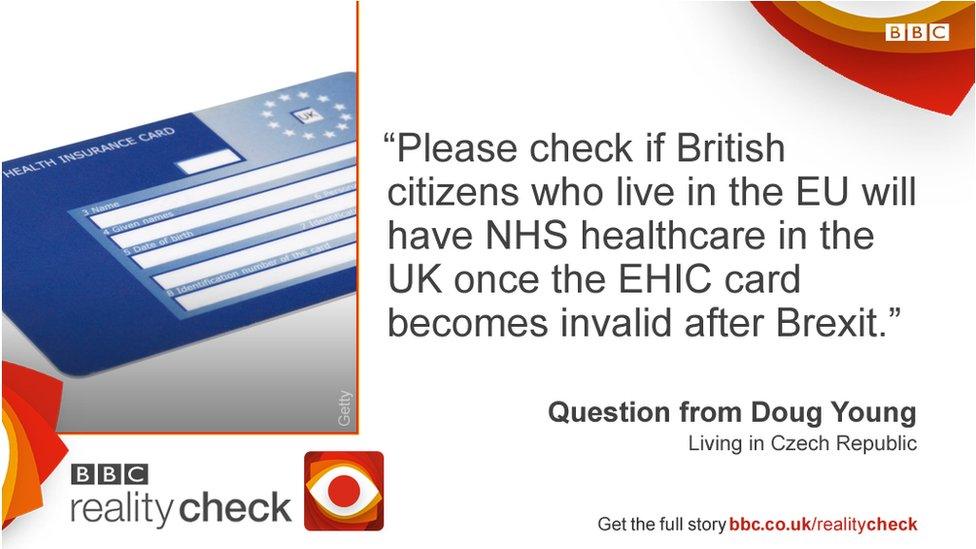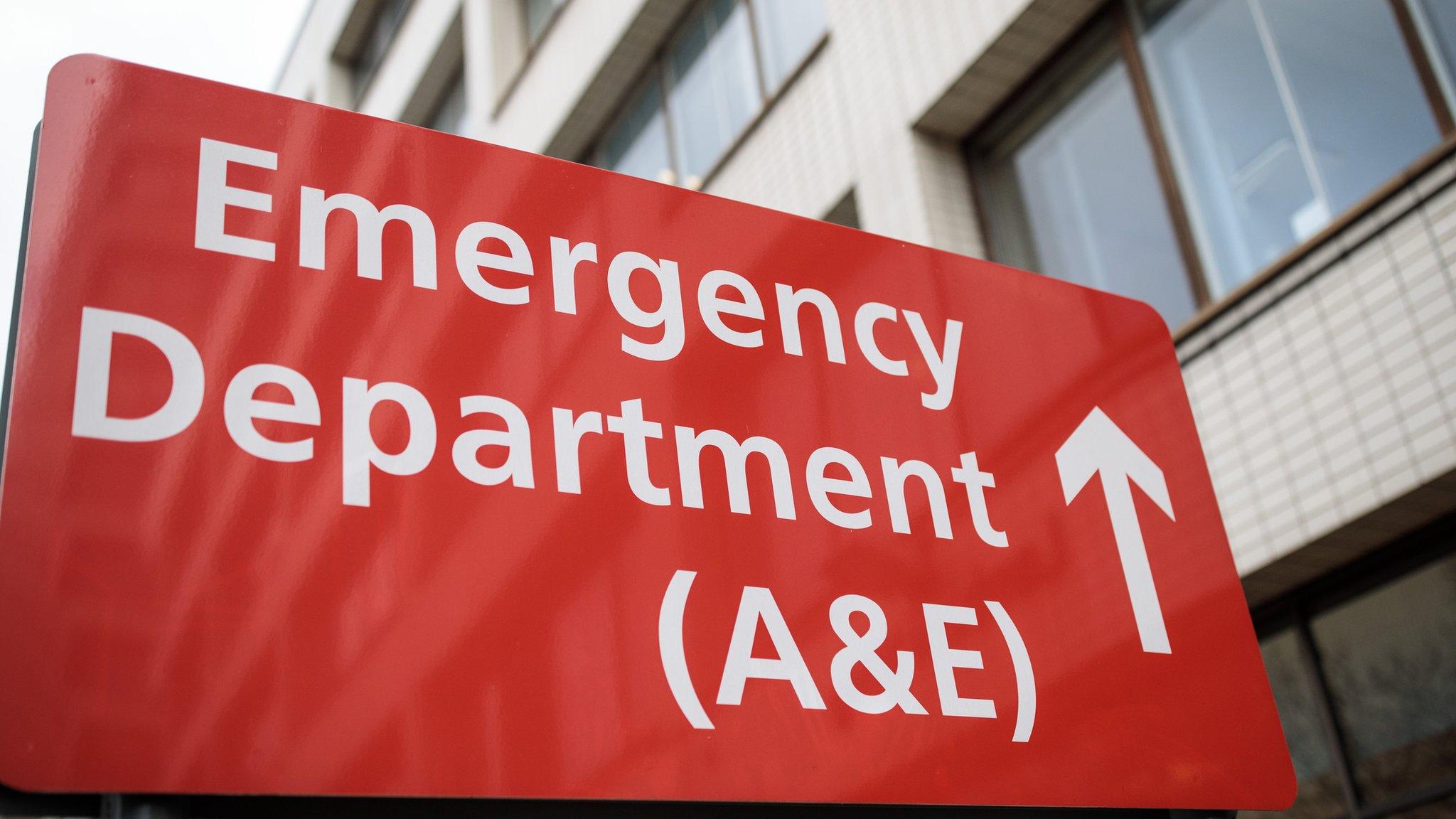Brexit: Will Britons in the EU have access to free NHS treatment?
- Published

We were asked by Doug Young, a British citizen who lives in the Czech Republic, if British citizens who live in the European Union (EU) will have NHS health care when visiting the UK, after the UK leaves the EU.
UK citizens resident in another EU country currently get their medical care in that EU country. They need their Ehic to access free treatment when they are in the UK.
Will that change after Brexit?
The short answer to Doug's question is: some British citizens in the EU will get free NHS health care - and some will not.
Transition
During the transition - the period between Brexit and 31 December 2020 - the rights of UK citizens in the EU will not change.
There are around 1.3 million, external UK-born people living in the EU, as workers and their dependants, pensioners, students and others. All of them are entitled to state-provided health care in the country they live in, on the same terms as the nationals of that country.
They are also all entitled to a European Health Insurance Card (Ehic), which enables them to use state-provided emergency medical treatment if they travel to another EU country (or Switzerland, Norway, Iceland and Liechtenstein, where the scheme also applies). The Ehic covers pre-existing medical conditions and routine maternity care as well.
UK citizens permanently resident in the EU need this card to access NHS treatment for free.
There are exemptions to this though:
UK pensioners living in the EU
UK students in the EU (for example, doing a year abroad)
"posted workers" - UK workers sent by their UK employer to work in the EU
These groups don't need an Ehic for free NHS treatment in the UK.

The Ehic covers routine maternity service and pre-existing conditions as well as emergencies
What will happen after the transition?
What happens to the Ehic in the future will be decided as part of the negotiations on the future EU-UK relationship.
The UK government said it was "seeking agreements with countries on health-care arrangements for UK nationals".
In September last year, the UK government's detailed country by country advice, external in the event that there is no deal to continue with Ehic, recommended to those travelling to buy travel insurance to cover health care.
How many UK citizens rely on Ehic to access NHS?
There's no official breakdown of the 1.3 million figure.
Estimates suggest about 250,000 are over the age of 65, external and about 50,000 are posted workers, external.
More than 15,000 UK students go to the EU as part of the Erasmus scheme every year and thousands more do a degree in another EU country.
This suggests most UK citizens resident in the EU need an Ehic to access the NHS while visiting friends and relatives back home.

What about Britons who return from the EU to the UK?
Some UK citizens might decide to return to the UK after Brexit.
The government says if they return to the UK permanently and meet the ordinary residence test, external, they will be able to access NHS care without charge.
The government website, external says: "Ordinary residence means, broadly, living in the UK on a lawful, voluntary and properly settled basis for the time being."
What about UK citizens living in non-EU countries?
If you are a British national but long-term resident in a non-EU country, you and your dependants are already ineligible for free NHS health care.
The UK has reciprocal health insurance deals with a few non-EU countries, including Australia and New Zealand, under which visitors can receive urgent treatment at a reduced cost or for free.
These reciprocal deals will be unaffected by Brexit or future UK-EU negotiations.


